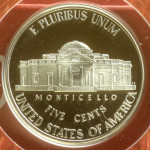We run our website the way we wished the whole internet worked: we provide high quality original content with no ads. We are funded solely by your direct support. Please consider supporting this project.
Counter-Cultural Community
On Tuesday Greg tweeted, “We inevitably acclimate to our environment. We can’t hope to be counter-cultural unless we’re embedded in a counter-cultural community.”
Surely almost all Christian leaders would agree with this. But what does a counter-cultural community look like? How do we relate to one another and to the world in a counter-cultural way? Too often being counter-cultural in a Christian context has meant that we operate as the judge of the rest of the world, which is not counter-cultural at all.
Greg explores the way that the church is to be a counter-cultural community in his book Repenting of Religion. He challenges the idea that the church is to be the judge of the world and offers an alternative way of living counter-culturally.
________________________________
While intimate relationships among small clusters of Christians characterized the early church, they are largely absent from the modern church. Today the church is usually associated with a weekly, large-group gathering of people who are mostly strangers to one another. Sadly, relationships have ceased being essential to the definition of church. Indeed, today the church is usually identified with the building where people occasionally gather while remaining strangers to one another. …
What is even more tragic, however, is that we often abstract the New Testament’s teachings about confession and accountability out of its first-century house-church context and try to apply it generally—as though the teaching were a set of rules that could be applied anytime, anyplace, to anyone. The result is that many Christians assume that it is their job to hold others accountable, whether or not they are in intimate relationships with them. We actually think we are doing what the Scripture teaches when we police people about whom we know nothing.
The result is that in the name of obeying Scripture, we disobey Scripture. In the name of love, we judge. In the name of serving others, we end up serving ourselves. Indeed, with the consistent misapplication of these scriptural teachings, we become trained specialists in deflecting attention from the tree trunks in our own eyes and in finding dust particles in other people’s eyes (Matt 7:1-7). (220-221)
The members of the body of Christ are to minister to one another. The New Testament teaches that members of the body of Christ are to encourage one another, confess sins to one another and pray for one another, speak the truth to one another, care for one another, admonish one another, and even confront one another. …
If the New Testament’s teaching on confession and accountability seems to us to stand in tension with its strong teaching against judgment, it is only because the New Testament presupposes an understanding of community that is largely absent in the modern church. Without this understanding of community, we don’t have a context to obey in a healthy way the New Testament’s teaching on the role of the community in transforming us by holding us accountable. When we try to apply this teaching outside the context of community as understood by the early church, it becomes judgment. …
In a small-group context, confession is healing, for it is done in trust, without the need to hide or perform. Within this context, accountability is beneficial, for it is carried out in the wisdom of love, which has taken the time to get on the inside of another’s story. Feedback is offered not on the basis of abstract, idealistic principles of right and wrong, for the relationship is not conditioned by the knowledge of good and evil. Feedback is rather offered with a personal understanding and empathetic appreciation for the complex uniqueness of the person’s concrete situation. For this reason, it is loving and helpful, not judgmental.
Loving and helpful confession and accountability are founded on a spirit created in trust that grows out of life shared together. It cannot be demanded on the basis of a program or a rule. In intimate contexts, people are free to be open about their struggles and to ask for help, for they fear no judgment. Nothing is forced; nothing is done with a motive to judge or shame. Each person grows in his or her walk with God with the loving assistance of the other members of the group. This is how the life of a disciple was meant to be lived. (217-219)
Category: General
Tags: Community, Confession, Counter-Culture, Judgment, Kingdom Living, Love, Relationships
Related Reading

Cross-like Love and Non-Violence
Cosmo Spacely via Compfight Though it seems to have been forgotten by many today, the cross wasn’t simply something God did for us. According to the NT, it was also an example God calls us to follow. Hence, after John defined love by pointing us to Jesus’ death on the cross on our behalf, he…

How Much Is Enough?
Richard Beck over at Experimental Theology wrote a reflection on insights he gained from the book How Much is Enough?: Money and the Good Life by Robert Skidelsky and Edward Skidelsky. He points out how the advent of money changed the way we view our needs and made it easier to hoard without noticing it. It’s a…

Podcast: Can We Really Have a Personal Relationship with Jesus?
It’s all about parts and wholes in this rip-roaring journey through the historical development of certain pietistic trends as Greg introduces his listeners to Depeche Mode Theology. http://traffic.libsyn.com/askgregboyd/Episode_0228.mp3

The Distinctive Mark of Jesus Followers
Jesus’ teaching to love our enemies was understandably shocking to his original audience—just as it is to us today. Jesus expected much, which is why, after telling his audience to love their enemies he added that if we only love those who love us and do good those who do good to us, we’re doing…

On the Language of “Revolution”
Nick Thompson via Compfight Question: The banner of your website and the thrust of much of your teaching focuses on “revolution.” While I can see a radical call in some of the sayings of Jesus, especially if he were addressing upper-middle class North Americans, I wonder if attaching revolutionary language to his teaching seems a…

Q&A: Condemning Sin
Q: I have a question about how you answer the rare occasions when Jesus apparently felt it necessary to publicly condemn sin: like the cleansing of the temple and his very strong judgments on Pharisees and rulers in Matthew 23. Also John the Baptist who not only preached strongly regarding public sins but was imprisoned…

